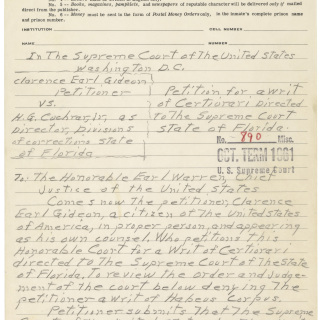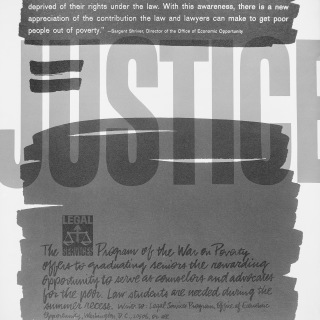Gideon v. Wainright 1962
Clarence Earl Gideon, a penniless drifter, was arrested many times. Sometimes he got off, sometimes he was sentenced to jail, but a lawyer was provided for him each time. So when a Florida judge refused to provide him with legal counsel, he believed his constitutional rights had been violated. He attempted to represent himself when his case went to trial, but was convicted of robbing a pool hall based on the testimony of one witness. He was sentenced to five years in prison.
While incarcerated, he wrote a petition to the Supreme Court. This petition, carefully handwritten in pencil on five sheets of prison stationery, initiated an appeal that would result in a revolutionary Supreme Court decision known as Gideon v. Wainright. Based on the Sixth Amendment, the ruling established that criminal defendants charged with serious offenses must be provided with a lawyer at no cost if they cannot afford one.

